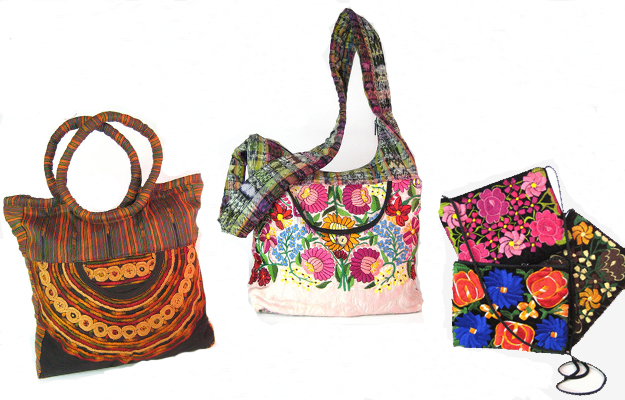Threaded Through History
These beautiful bags preserve a long-standing Guatemalan tradition and give women opportunities like never before.

Not all of us end up in fulfilling careers directly tied to our majors in college, but social entrepreneur Stephanie Jolluck is a shining example of putting every inch of a degree to good use.
After studying Latin American literature at Universidad de Guadalajara, Mexico, and finishing her degree at Georgia State University, Jolluck spent time volunteering with an NGO in Guatemala, where she saw a startling discrepancy: some of the women making the most beautiful and culturally relevant textiles honoring the traditions of their country were also some of the most profoundly poor. So, she founded an organization called Coleccion Luna, through which those same artisans are compensated fairly for creating gorgeous textiles from reclaimed Mayan Indigenous clothing like "huipiles" (blouse-like garments), "corte" (skirts/utilitarian fabric), and "faja" (belts). They're given the choice to work from the comfort of their own homes, where they're free to run their households on their own terms, or in any of three cooperative houses provided by Coleccion Luna to offer a sense of community among the craftswomen as they create their masterpieces.
Coleccion Luna supports a number of humanitarian causes supporting women's empowerment, including CARE.org (the folks behind "The Day of The Girl" and Safe Passage. Its bags, coin purses and pillows (all ranging from $7 to $95) are available through its website.
More about CARE.org
Last year, CARE worked in 84 countries around the world, supporting 1,105 poverty-fighting projects to reach 122 million people, more than half of whom are women.
CARE not only feeds the hungry; it also helps tackle underlying causes of poverty so that people can become self-sufficient. Recognizing that women and children suffer disproportionately from poverty, CARE places special emphasis on working with women to create permanent social change.





